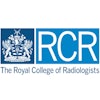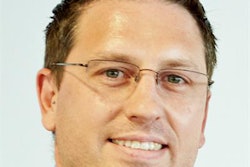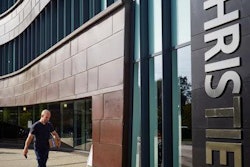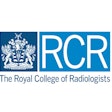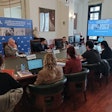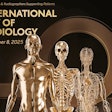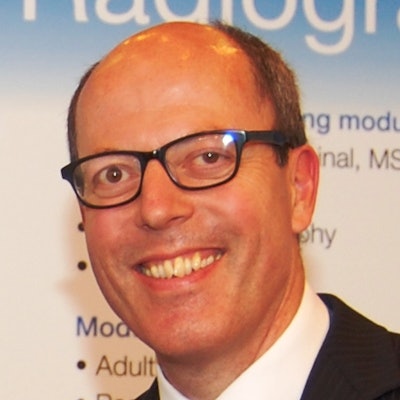
The U.K. Society of Radiographers (SoR) has refuted the suggestion made in Tuesday's AuntMinnieEurope.com opinion piece by Dr. Anna Larici that radiographers must not read chest x-rays and cannot conduct clinical image reporting to a standard equivalent to a senior radiologist.
"Research evidence clearly supports the assertion that reporting by radiographers can contribute without compromise to a team approach to the delivery of clinical imaging services," noted the SoR in a statement issued on 15 June. "The SoR believes that it is professionally unacceptable to support or accept standards of reporting by radiographers that are inferior to those by radiologists."
All reporting radiographers should be subject to formal continuing audit to demonstrate competence, and radiologists and radiographers should work together locally to undertake team audit and quality assurance, the statement continued.
Guidelines from the SoR set clear and stringent standards for professional development, leading to competence in image reporting, and these include approved training provision at master's level and clinical supervision to develop skills in a prescribed field of practice, the SoR added.
Sad spectacle
"Once again, we have the rather sad spectacle of a highly respected member of one profession spending time and effort in an attempt to make a point by insulting members of another profession," wrote Richard Evans, CEO of the SoR in a blog, also posted on 15 June.
 Richard Evans, CEO of the SoR.
Richard Evans, CEO of the SoR.Imaging services to patients completely depend on harmonious teamworking and mutual professional respect, and the 7 May article on a study by Nick Woznitza, PhD, that prompted Larici's column contained no disrespect of radiologists and no attempt to undermine the professional status of radiologist colleagues, he added.
"After a career in radiography, the medical professionals I most respect and look up to are all radiologists. I imagine this will be the same for radiographers everywhere," Evans noted. "It is well-known that advanced clinical practice and specifically opportunities to take part through teamworking in the reporting of clinical images is not currently widespread outside the U.K. I imagine that in Italy there is no clinical requirement for additional reporting capacity."
Radiographers everywhere would line up with Larici in resisting any attempts to question the expert knowledge of radiologists, he noted.
Need for proper context
The suitability of radiographer reporting depends on an individual nation's healthcare system and needs, according to Dr. Elisabetta Giannotti, a consultant radiologist at Nottingham Breast Institute City Hospital in Nottingham, U.K., and a member of the AuntMinnieEurope.com Editorial Advisory Board.
"The presence of reporting radiographers fits well in the U.K. context, as is demonstrated by daily practice, but I do agree with Dr. Larici that this is not applicable in Italy, where the training system, work design, and responsibilities of radiographers are completely different. For those reasons, Italian radiographers cannot report any kind of examinations, now or in the future, according to how the health system is organized," she wrote in a posting in the Forums section of AuntMinnieEurope.com.
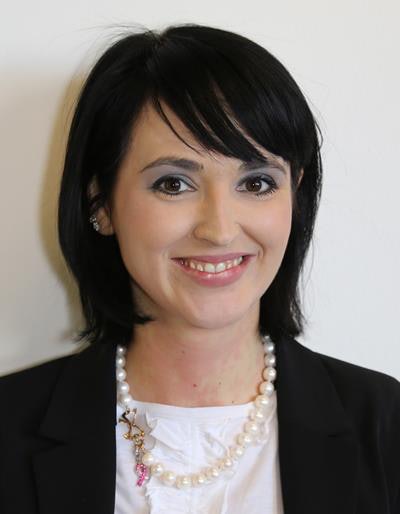 Dr. Elisabetta Giannotti. Photo by Christof. G. Pelz.
Dr. Elisabetta Giannotti. Photo by Christof. G. Pelz.The U.K. has successfully introduced reporting radiographers and film readers, and there is structured postgraduate training to ensure the technicians report to a high standard, Giannotti pointed out.
"They do not want to substitute a radiologist's role," she emphasized. "It is definitely a physician who has a vision and understanding of the patient. Consultant radiologists attend and lead multidisciplinary team meetings where the entire management of the patient is discussed with other clinicians."
The presence of reporting radiographers should be seen in the background of the National Health Service (NHS) organization, she added. For instance, nurse practitioners and sonographers have an extended role in the patient's care.
The study by Woznitza proves that radiographers with adequate training can reliably report chest x-rays in a U.K. context, but that cannot be translated into a different context, with different training and structural organization, according to Giannotti.
"Reporting radiographers cannot substitute the radiologist," she wrote. "Demand for radiological examinations is continuously increasing and manpower issues represent a problem worldwide. Having adequately trained technicians or an artificial intelligence system will help the radiologist to concentrate better on management of the patient and other difficult tasks."
Another successful example of reporting radiographers is as film readers who work in the NHS breast cancer screening program, she noted.

